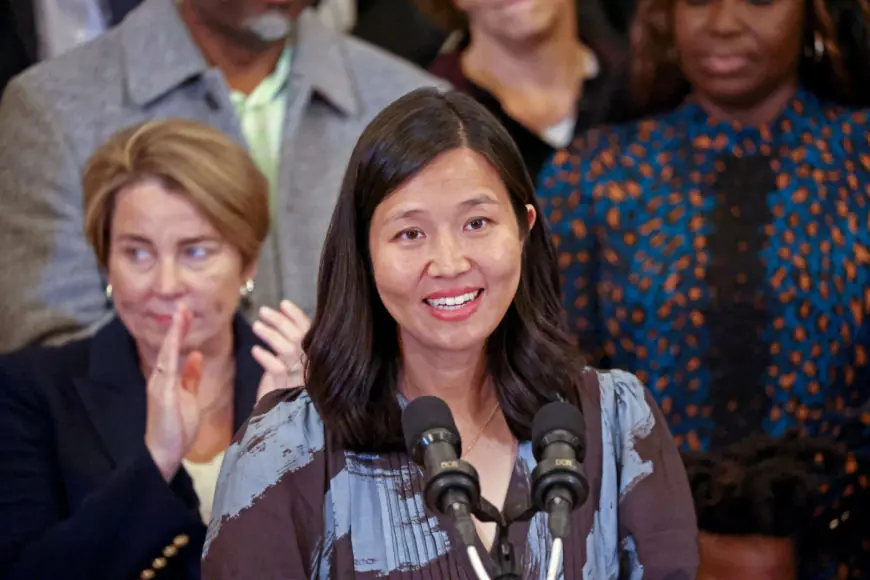Battenfeld: Rookie Mayor Michelle Wu outduels business community on commercial tax hike deal
The tax win is especially impressive given the fact that the far left mayor has often been criticized for having a poor relationship with the business community and shutting them out of major decisions.

Michelle Wu largely got her way on the plan to hike Boston’s commercial taxes without totally caving to the business community – a strategic feat that showcased her political skills and clout.
In fact it was business leaders who caved to the rookie Boston mayor, agreeing to a smaller hike in commercial taxes offered by Wu as a compromise.
The agreement ended a months-long battle where Wu pointedly refused to give in or agree to calls for her to cut the city budget rather than raise taxes.
But in the end Wu did agree to a deal with her adversaries, one that will lead to a less than feared residential tax hike – good news for residents who will go to the voting booth in a year.
The tax win is especially impressive given the fact that the far-left mayor has often been criticized for having a poor relationship with the business community and shutting them out of major decisions.
Now the question is does this signal a new relationship between Wu and business leaders going forward?
The strategy that led to Wu’s victory was downright Meninoesque, not surprising given she worked in the Tom Menino administration.
The City Council is expected to pass the deal with minimal opposition – with Wu critic Ed Flynn saying he wants more public input on the plan.
Now it’s likely the Legislature – which was waiting for the go sign from business leaders – will go along with the home rule petition, giving her a massive victory that she can tout on the campaign trail.
Under the deal reached by Wu and business leaders, commercial property tax rates will go up to a maximum 181.5% of the residential rate in the first year, then drop to 180% and 178% in succeeding years. The current rate is 175%.
Wu initially was demanding a 200% maximum rate for five years, so she did come down on the compromise quite a bit.
But she knew that initial plan would never be passed by the Legislature– she only used that as a bargaining chip.
To get to a compromise, Wu sat down with the biggest business community leaders and organizations in the city, including the Greater Boston Chamber of Commerce, the Boston Municipal Research Bureau, and even the Massachusetts Taxpayers Foundation. Getting all those groups to agree on anything is a major feat.
“As we continue working together on the challenges facing our communities and economy, I’m grateful for the strong leadership and partnership from across our neighborhoods and business community to plan for our shared future and economic growth,” Wu said.
Business leaders and lawmakers like State Sen. Karen Spilka initially blanched at Wu’s first proposal, arguing it would be too great a burden on the struggling commercial property sector, which has been hard hit with vacancies.
But by lowering her demands, Wu allowed her opponents to save face.
It was a smart move, especially for a first-term mayor not known for her deal-making instincts.

What's Your Reaction?









































































































